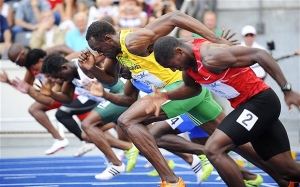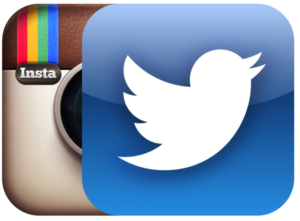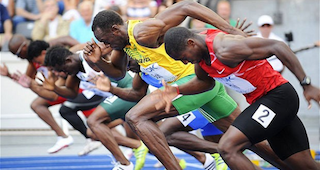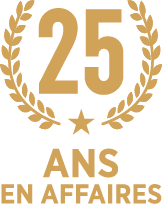The Language of the Olympics

Bilingual Regulations for the IOC
That’s right, of all the languages one could encounter at the Olympics, French is the one that is most notably absent. Why you might ask? Just like Canada, the International Olympic Committee (IOC) has it written in its charter that the official languages of the Olympic games are English and French.
Article 24 of the Olympic Charter puts English and French on equal ground. On top of the necessary bilingualism, the official language(s) of the host country are also adopted for the duration of the Games.
Bilingual regulations make sense in an individual country such as Canada, but it is interesting that the IOC, an international organization by name, should choose to put so much focus on two languages. With so many countries meeting in one place there are so many opportunities to learn about new cultures.
Social Media Goes Multilingual
Recent press conferences in London have been conducted solely in English, making it difficult for foreign press at times. However, multilingual social media has exploded onto the London 2012 scene. Professor Andy Miah writes that London is “the first truly social media Olympics”.

Press and Fans Turn to Social Media for Olympic News
The press has taken full advantage of this, Twitter is not just for reporting results, it can be the birthplace of stories as well. Tweets have caused everything from an athlete’s exclusion from the games to failures in broadcasting. Monitoring the Twitterverse has become part of the job for any Olympic reporter wanting to stay up-to-date.
Beyond the press, social media is allowing for fans to get up close and personal with their favourite Olympians. The IOC created an “online Village” which connects people with athletes’’ Facebook and Twitter profiles. One initiative is the Twitter forum #askanathlete, which allows people to have conversations with the Oympians.
Want to know just how much social media has factored into London 2012? Check out the infographic below from mashable.com:
From Bolt to Phelps, there will be many outstanding Olympic legacies from London 2012. Amidst the surprises and successes of the games, social media will lie at the core of this legacy. It may not be one of the big stories of London 2012, but it was the backbone that let those stories be told more quickly and vastly than has ever been seen before.
















